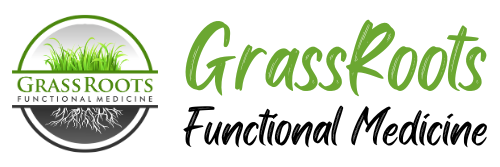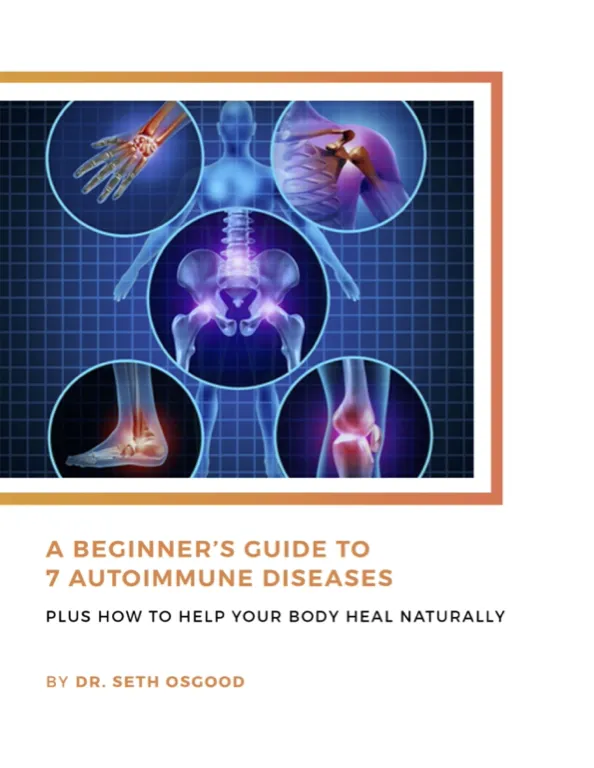If you struggle with an autoimmune condition, chronic inflammation, or Lyme Disease and don’t know about Low Dose Naltrexone, you need to read this article! Low Dose Naltrexone (LDN for short) is a therapy we have used at GrassRoots Functional Medicine for many years that has proven to be extremely helpful for a wide range of immune-related conditions. Don’t be deterred by the fact that naltrexone is a prescription medication; when used in very low doses it’s extremely safe and effective and doesn’t cause any scary side effects or long-term complications. This article will cover what it is, how it works, who it can help, and whether it might be a good fit for you.
What Is LND?
Naltrexone is a medication created to help people come off drugs and alcohol because it blocks opioid receptors in the brain, making these substances no longer pleasurable. However, doctors discovered that at a much lower dose than what is used for drug withdrawal, LDN showed terrific benefits for a wide range of chronic inflammatory and immune-mediated conditions.
How Does LDN Work?
Why would a drug that blocks opioid receptors help autoimmunity and inflammation? Let’s take a look at the leading theories researchers are proposing!
Research shows that people with autoimmune conditions tend to have low levels of endorphins. Endorphins are the body’s natural painkillers. They function similarly to opioid drugs like morphine, but the body naturally produces them. Low endorphins leave you more sensitive to physical and emotional pain (i.e. stress)!
When you take naltrexone, it temporarily blocks the receptors that endorphins would usually bind to. The body responds to this short-term lack of opioid signaling by upregulating endorphin production, which translates to higher levels of endorphins in your body, resulting in less pain and inflammation.
The other way LDN may help people with autoimmune conditions is by deactivating overzealous immune cells. When someone has an autoimmune disease, the immune system inappropriately attacks and damages the tissues in the body leading to dysfunction and disability.
The immune cells in the central nervous system are called microglia. The job of the microglia is to attack bacteria, viruses, mold, etc. in the central nervous system by initiating a cascade of inflammatory cytokines. This inflammation is good in the short term to kill off foreign invaders, but it becomes a problem when the attack is prolonged. Chronic activation of microglia is associated with fibromyalgia, chronic pain syndromes, poor sleep, low mood, and cognitive issues.
LDN blocks toll-like receptors on microglia, effectively turning off their inflammatory abilities. In addition to stopping the production of inflammatory molecules in the central nervous system (brain and spinal cord), LDN can suppress inflammatory agents like TNF-alpha, IL-6, and MCP-1 in the peripheral nervous system.
Conditions LDN Helps
At GrassRoots, we have found that LDN can help people with various conditions. Due to its pain-relieving properties, LDN helps fibromyalgia and other chronic pain syndromes. Its immune balancing effects make it a promising therapy for autoimmune disorders, including Hashimoto’s thyroiditis, Crohn’s disease, multiple sclerosis, rheumatoid arthritis, lupus, and psoriasis. Clinicians also use LDN for neurodegenerative diseases like Parkinson’s and Alzheimer’s because it reduces inflammation in the brain. There is even research to evaluate LDN’s impact on slowing cell proliferation in cancer and increasing intestinal motility in SIBO.
Another use for LDN is as a treatment for Lyme disease. Acute Lyme Disease is typically treated with antibiotics which can be a very effective option if treated quickly and aggressively. Unfortunately, many people with Lyme disease suffer from a host of symptoms months or even years after the initial exposure. In these cases, the Lyme bacteria may not be the actual cause of the persistent symptoms. The disability and symptoms may be related to an overactive immune-mediated response. LDN’s ability to halt inflammation and rebalance the immune system gives it the potential to provide relief for those dealing with chronic Lyme.
Is LDN Right for You?
Even though Low Dose Naltrexone is a prescription medication, it meets all the criteria for being an excellent therapy, even in the Functional Medicine world. It is incredibly safe with a good chance of helping! The only reported side effects we will occasionally see include mild anxiety, insomnia, and vivid dreams (and we have no control over what you dream about, haha)! Given its safety profile and clinical track record, LDN may be worth considering as a part of your holistic approach to managing your autoimmune or inflammatory condition. At GrassRoots, we utilize LDN alongside many therapies to support your body’s innate ability to heal. Explore our Adaptation Programs to learn more.






